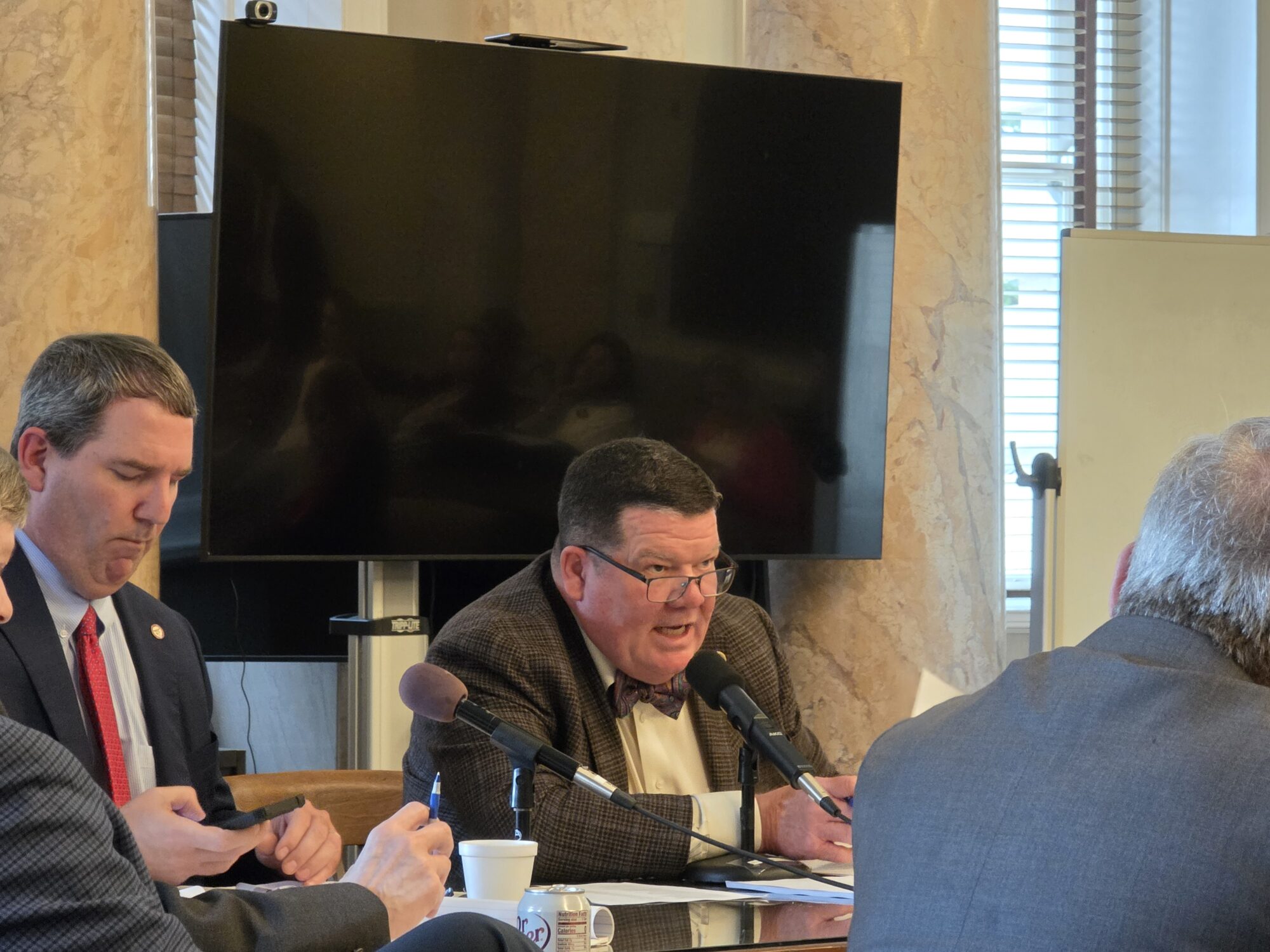
Legislation Would Provide $25 Billion Boost to U.S. Navy’s Maintenance and Construction Shipyards.
U.S. Senators Roger Wicker, R-Miss., Tim Kaine, D-Va., Susan Collins, R-Maine, Angus King, I-Maine, and Jeanne Shaheen, D-N.H., along with Representatives Rob Wittman, R-Va., and Mike Gallagher, R-Wis., today introduced the Supplying Help to Infrastructure in Ports, Yards, and America’s Repair Docks (SHIPYARD) Act of 2021, which would provide $25 billion to make investments needed to optimize, improve, and rebuild shipyard facilities, electrical infrastructure, environmental systems, and the equipment of public and private shipyards in the U.S. that support the U.S. Navy fleet.
The act would designate $21 billion for the Navy’s four public shipyards in Virginia, Maine, Hawaii, and Washington, $2 billion for major Navy private new construction shipyards, and $2 billion for Navy private repair shipyards.
“As lawmakers consider ways to improve our nation’s infrastructure, the facilities that support our Navy fleet should be a part of the conversation,” Wicker said. “Congress has already taken the important step of committing to a larger Navy, but our shipyards are having trouble servicing today’s 296-ship fleet and are clearly insufficient to maintain the 355-ship or larger fleet we need to counter China, Russia, and other adversaries. Now is the time to provide our Navy leaders the support they need to grow and preserve our fleet for generations to come.”
“Virginia’s public and private shipyards are crucial to strengthening our national security,” said Kaine. “This legislation would ensure that our sailors, shipbuilders, and ship repairers have the most up-to-date tools, equipment, and facilities to ensure our Navy remains ready to protect our nation.”
“The importance of our naval assets to our national security and global stability has never been greater, which is why it is so critical that our defense industrial base has the capacity to build and maintain a larger fleet,” said Senator Collins. “If we are serious about the United States competing against and deterring China, we have to consider our vital defense infrastructure. For example, the Navy has specifically identified a critical lack of dry dock capacity at our nation’s four public shipyards. I have long advocated for modernization of Portsmouth Naval Shipyard and Bath Iron Works in Maine to help the highly skilled employees continue to successfully carry out their essential missions in modern, streamlined facilities. Our bipartisan legislation would support infrastructure improvements at shipyards across the country to help reduce maintenance backlogs, increase safety and efficiency, and accommodate growth to counter China’s growing naval ambitions. As a member of the Military Construction Appropriations Subcommittee, I will continue to advocate for infrastructure projects at shipyards to keep our Navy strong.”
“Portsmouth Naval Shipyard and Bath Iron Works play critical roles in both our nation’s national defense and Maine’s economy,” said Senator King. “The contributions of these yards are absolutely essential to the Navy’s ability to operate, and create thousands of good-paying jobs across Maine – both on-site and with contractors who provide additional support. As the Navy seeks to grow its fleet to address an array of challenges across the globe, and the associated maintenance requirements continue to expand, it is absolutely essential that we provide these shipyards with the modern tools and technologies they need to meet growing demand. This bipartisan legislation will make much-needed investments in a critical part of our national security infrastructure – including adaptations to prepare for the potential impacts of climate change – ensuring that these storied yards will be able to continue to fulfill their important duties for decades to come.”
“The Portsmouth Naval Shipyard is an economic engine of New Hampshire’s Seacoast region and brings immense pride to our state by bolstering its role in support of our national defense. The oldest, continually operating shipyard in the nation, the stability and security of PNSY and its workers are of critical importance,” said Shaheen. “That’s why I’m glad to partner with Senator Wicker and this bipartisan group of lawmakers on this legislation to make robust federal investments in the facilities, infrastructure and equipment at shipyards across the country, including New Hampshire. Modernizing the structures and capabilities of our shipyards is crucial for both our military readiness and our local economies, which is why I urge members on both sides of the aisle to join us in this effort.”
“The United States Navy depends on four American public shipyards, including Norfolk Naval Shipyard right here in Virginia, to maintain and modernize our nuclear-powered submarines and aircraft carriers,” said Wittman, “But our shipyards’ aging infrastructure fails to provide the capacity, configurations, or equipment necessary to maintain fleet readiness. These factors have not only resulted in a maintenance backlog amongst our current ships but has left us ill-prepared to grow our Navy to keep pace with China. After all, we can build all the ships we want, but if they are tied at the dock due to maintenance backlogs they don’t do us much good. The SHIPYARD Act solves these problems by injecting desperately needed funding into the Navy’s Shipyard Infrastructure Optimization Program (SIOP) and making critical infrastructure investments to modernize American shipyards. Moreover, this bill marks one of our most substantial SIOP investments to date, highlighting the program’s ever-growing importance.”
“At a time when China is commissioning three ships in a single day, we desperately need to strengthen the American shipbuilding industrial base to expand, support, and service the fleet,” said Rep. Gallagher. “The bipartisan, bicameral SHIPYARD Act makes critical investments to better ensure shipyards across the country, such as Marinette Marine, can build the Navy the nation needs.”
The legislation would help to address a backlog of modernization, maintenance, and expansion projects the U.S. Navy has identified at public shipyards and provide the Navy flexibility to support capital improvement projects and other investments at yards that are critical to maintaining and growing the fleet. Projects identified by the Secretary of the Navy would include improvements to shipyard infrastructure, construction of new dry docks, and other items to enable these shipyards to keep pace with Navy needs for decades to come.
Among other provisions, the legislation would:
- Fully fund the Navy’s $21 billion Shipyard Infrastructure Optimization Program (SIOP) at the nation’s four public shipyards in Portsmouth, Va., Kittery, Maine, Pearl Harbor, Hawaii, and Bremerton, Wa.
- Invest $2 billion in commercial repair shipyards, subcontractors and suppliers that maintain the U.S. Navy fleet, allowing the Secretary of the Navy to fund key upgrades and infrastructure modernization projects to address current and future maintenance needs.
- Invest $2 billion in commercial new construction shipyards, subcontractors and suppliers that build the U.S. Navy fleet, allowing the Secretary of the Navy to fund key upgrades and infrastructure modernization projects to meet current and future Navy capability and capacity needs.
- Provide all funds via the Defense Production Act, removing typical fiscal year constraints on appropriations and increasing flexibility to enable the Secretary of the Navy to accelerate contract awards.
Click here to read a white paper on the legislation.
Click here to read the full legislative text.
###
Release from Senator Roger Wicker.









